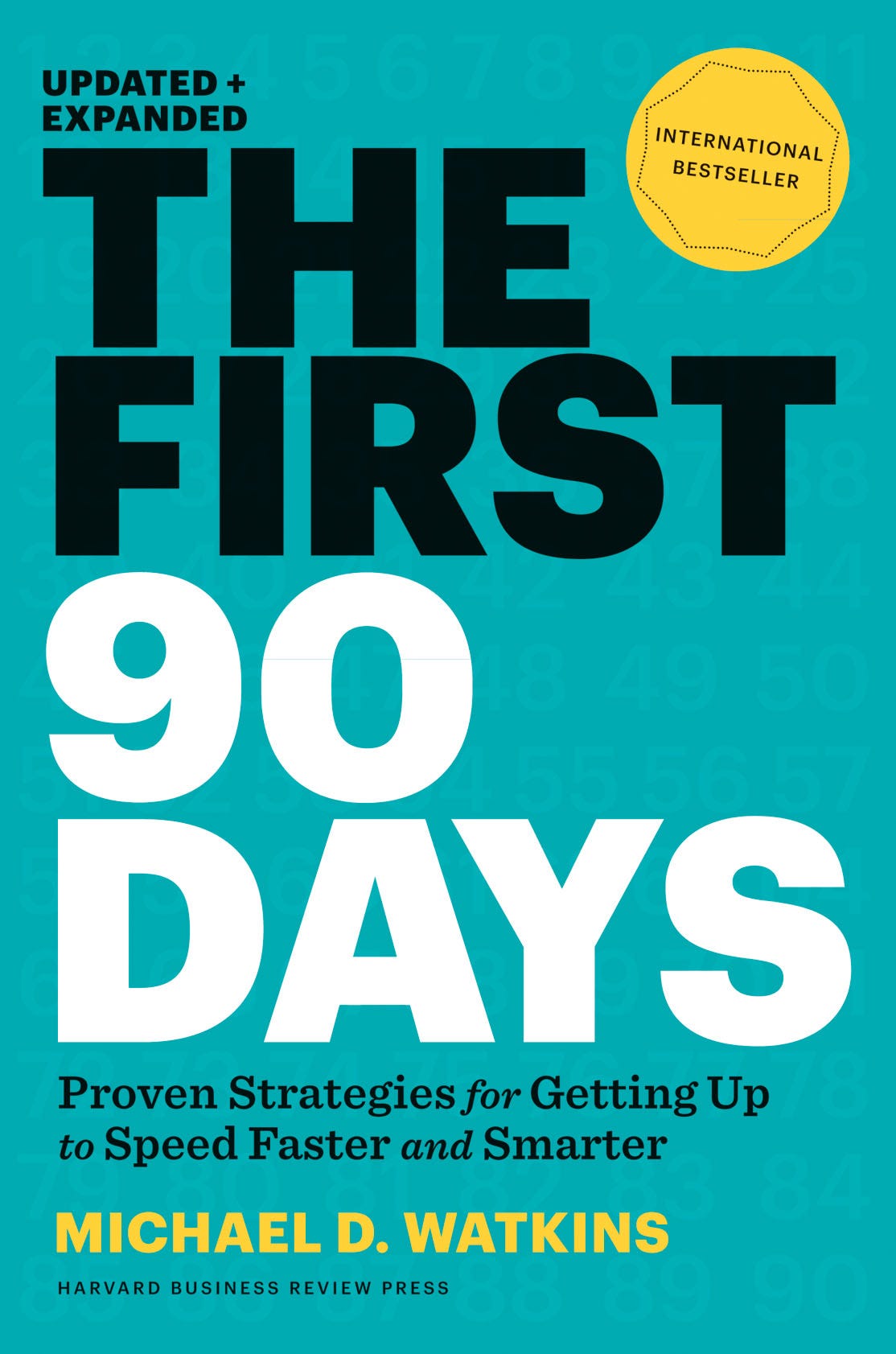
November 17, 2020
'The First 90 Days', By Michael D. Watkins
When a new leader fails to thrive, it’s a severe, perhaps career-ending, blow to the individual…Every failed transition - whether outright derailment or less dramatic underperformance - exacts costs from the organization as well.The First 90 Days, by Michael D. Watkins, pg. 239
Figuring Out Your Shtuff
You know that feeling when you just start a new job, or the period right after you get promoted into a new position? That feeling of not knowing what on earth you are doing, almost like you are stuck in a room without light and you have to feel your way around for the light switch? Finding the ‘light switch’, as it were, often involves asking those around you for help and direction. Lets face it, you are a bit of a drag on those around you as your co-workers and bosses have to context-switch to provide you help and direction. Eventually, you begin to figure things out on your own and start to get some traction as you begin making head-way in your new role.
This is the point that author Michael D. Watkins calls the ‘break even point’. According to Watkins, it’s really important that you get to this break even point no later than 90 days into your new position lest you begin to inordinately tax the organization that you are now a part of, and no one likes taxes.
Soon after the break even point, the well performing employee should be at a place in their new role where they are providing more value to an organization than they are extracting from it in their day-to-day. Getting past the break even point in that first 90 days and finding a way to prove your value to an organization can be easier said than done.
Create A Success Strategy
Watkins provides a map to his readers to help build a successful transition strategy in a new role. Roughly speaking, this map includes the following waypoints:
- Prepare Yourself - Get your mind ready for the challenges that lay before you. Take a deep breath.
- Accelerate Your Learning - Learn as much as you can, as fast as you can, about your new organization.
- Match Strategy to Situation - You may manage a portfolio of different situations in your new role. Ensure that your success strategies fit each situation.
- Negotiate Success - Build productive relationship with your boss and co-workers. Define expectations and success.
- Secure Early Wins - Build momentum through small successes, early and often.
- Achieve Alignment - Be an organizational architect and restructure to optimizer performance.
- Create Alliances - Foster team work, strength and honor in your organization.
- Manage Yourself - Take care of yourself and don’t let too much stress burn you out.
Other Key Takeaways
Soft/Power Skills
Dr. Caple and I discuss Soft Skills, or Power Skills, and their importance in higher levels of an organization a bit more in this podcast.
And for the record, I have no soft skills. C’est la vie.
Interesting Acronyms And Concepts
STARS
STARS is an acronym for five common business situations. These situations can apply just as equally to companies as to projects within a company:
- Startup
- Turnaround
- Accelerated Growth
- Realignment
- Sustaining Success
Knowing the phase of your company, or phases of projects in your management portfolio, is an important skill, as is knowing how to optimize the performance of each project through adroit skill set assignment.
SWOT
Dr. Caple claims this concept is a bit out-dated as we discuss in the podcast. Figures, as this is the first time I’ve heard of it.
- Strengths
- Weakenesses
- Opportunities
- Threats
Yerkes-Dodson Stress Model
In our last podcast (episode 15), Stephen Schwarzman (in his book, ‘What It Takes’), argues that a bit of constant worrying is a good thing, as it serves to keep you on your toes and alert to signficiant changes that may be coming your way. Similarly, Watkins claims that a bit of stress can be a positive driver for projects and individuals in helping to get things done, as described on page 227 of his book. However, too much stress over protracted periods of time can have deletrius effects on one’s performance and lead to burn-out.
I would argue that personal fitness is key in helping to avoid burn-out.
Conclusion
In carrying forward one of the themes from our last week’s podcast, the idea that the best executives are made, not born, ‘The Last 90 Days’ attempts to provide some ways in which someone on the path to executive leadership can begin to enhance their skills and strategies in such pursuits.
As exemplified in this book, it’s a complicated process fraught with political land-mines, organizational challenges, employee performance struggles, etc. Not to mention the fact that should you fail in your pursuit of higher office, it could be detrimental to your career (and organization). The prospect of all of this is seemingly not for the faint of heart.
However, I suspect career growth and progress, for those sufficiently motivated and self-educated, need not be overly worried about the prospects of career growth, success or failure when properly cultivated in caring organizations.
And always try to keep a weather eye on the bottom line.
Relevant Links
James Caple
BLOG
podcast career goals professional growth continuous learning michael d. watkins the first 90 days SWOT STARS Yerkes-Dodson success soft skills break even point